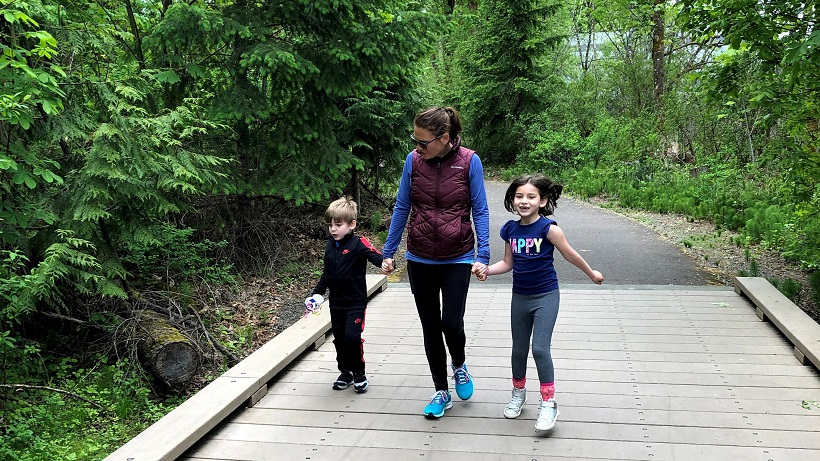This past weekend was one of those jam-packed weekends parents are all too familiar with. Multiple birthday parties and other events, not to mention time spent at synagogue for services. On top of that, the kids took turns staying home from school, one on Friday and one on Monday, because of a cold that made its way through our whole house and turned out to be Covid for one of us. Needless to say, our moods have not been cheery.

I am by no means trying to prove what a “normal” mom I am; rather, there’s a very relevant Torah tie-in here. I was guided by our portion this week, Bechukotai. Parshat Bechukotai is the final portion in the book of Leviticus. It acts as an epilogue to the holiness code and continues to guide us in our pursuit of societal and personal happiness. We see laid out for us the ultimate reward system for living a life of mitzvot. At the heart of the text is a follow-up to the blessings that come to those who follow God’s ways and the curses to those who don’t. Interestingly, the text spends more time explaining the consequences of veering off the path than on the blessings for following the mitzvot.
The parshah begins, “If you follow My laws and faithfully observe My commandments . . .” Some commentators have understood “My laws” as “the laws that I Myself follow.” In other words, it’s an admission that these are also God’s laws. In addition, the verb for “follow” literally means walk or go. Leviticus Rabbah infers that humans “walk” in God’s ways, but angels “stand” in the presence of God. Unlike angels, when we human beings do wrong, we have the ability to grow and change and learn from those errors in judgment.
So what do I do when I realize I haven’t been my best self? I apologize. I’m honest and I admit to my family that I’m not perfect and could have reacted differently. Then I actually do my best to model reacting differently.
To walk in God’s ways isn’t to behave like you think God might behave (or worse, as if you are God). It’s to have enough awareness of your actions to know when you’ve done wrong and the capacity to forgive when others have done wrong. To walk in God’s ways means to change, but more importantly, to recognize that we can change, especially after a mistake.
– Rabbi Eve Posen
Source: Walking in God’s Ways (Without Being God) – Parshat Bechukotai 5782



